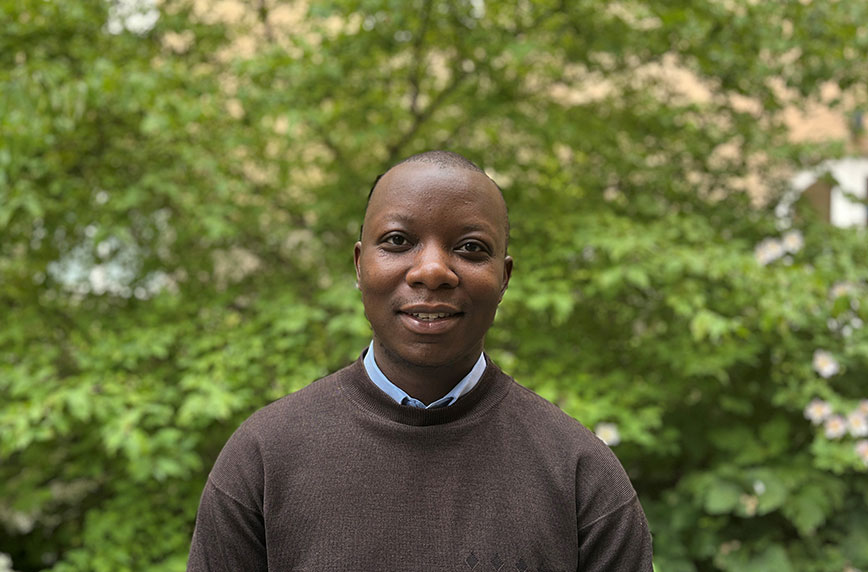Amos
Amos comes from Malawi. Before coming to Sweden, he was working as an Assistant Lecturer in Land Economy at Malawi University. His bachelor's studies were in Science in Land Economy. He enjoys traveling, seeing the architectural beauty of different cities, and hiking.

Why did you choose this master’s programme at KTH?
In the research I made before I applied, I noticed that the courses were relevant, and the tracks offered by the programme were flexible. The combination of the Real Estate Economics and Construction Management in the master's programme here at KTH is very impressive. This type of master is only offered by very few universities worldwide. Now, I can say I got equipped with advanced valuation techniques and project-based construction management techniques all in one programme.
What are the best aspects of your programme?
The programme is project-based and practical. All courses have a project that students are guided on as they must complete it. Most projects are about current Real Estate or Construction Industry issues that are relevant worldwide, which makes it easier to learn, improve and expose yourself to how best you can deliver within the real estate profession. I love the flexibility of the programme, which enables me to additionally learn Building and Real Estate Economics along with several courses related to real estate development and law and construction project management.
Have you chosen a specialisation track within the programme? If Yes, which track and why?
The programme offers three specialisation tracks: Building and Real Estate Economics, Construction Project Management, Real Estate Development and Land Law sequences. I chose to specialise in Building and Real Estate Economics. My choice is based on my career, as it is more centered on Property Management and Real Estate valuations. Furthermore, this specialisation exposes me to real estate financial investment issues, which is a plus knowledge for me. Additionally, whilst studying building and real estate economics, I have a chance to select two courses in the construction project management track that complement my career in property management from the construction perspective.
What are some of your favorite courses so far?
All the courses I have gone through have been very interesting and relevant. However, three courses have enormously impacted my education: Advanced Valuation & Analysis, Contract Theory with Application to Property Management and Corporate Finance. The projects on these courses were extra relevant, and the learning outcomes were quite interesting, and career-centred.
What do you want to do after graduating?
I would love to explore the possibilities of PhD studies before I return to work in the Academic and Real Estate consultancy. In the future, I would like to work as a Real estate consultant under the Malawi Ministry of Land and Public Works. I would love to contribute to the growth and development of sustainable cities.
What would you like to say to students thinking of choosing KTH for master’s studies?
I attest that KTH is home to innovation and relevant studies. Learning services are at the tip of students. Be assured that you will get all the help you need in your studies. Additionally, using group projects and assignments, KTH encourages student cooperation and interaction. This will give you the opportunity to learn from other like-minded students and expose yourself.
